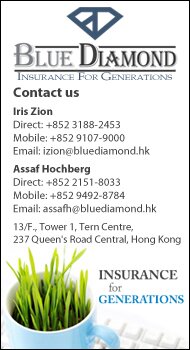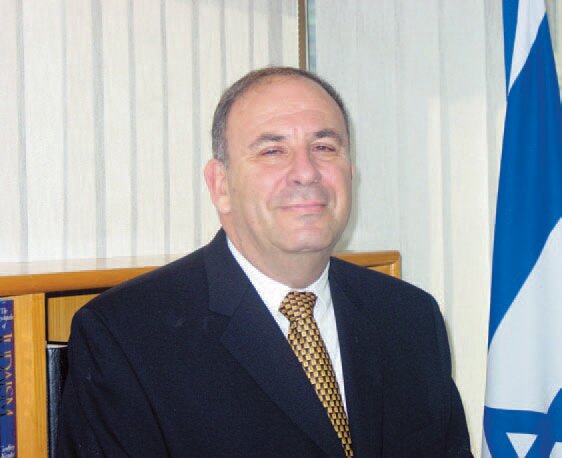|
Mara Moustafine is an academic. She is a historian and a former journalist, intelligence officer and diplomat. She is clear that her book, Secrets and Lies - The Harbin Files, is history but it is really so much more.
Her book is the story of her journey, across continents, political systems and through time to uncover the truth of the fate of her family lost behind the Iron Curtain. The start of Mara Moustafine's journey began the day she stole a photograph from her grandmother Gita's drawer.
The photograph, of her grandmother Gita's sister Manya, is described by Moustafine as a portrait of a young woman who was, “worldly-wise and modern. Dressed in an open-necked trench coat, with dark shoulderlength hair…gazing mysteriously into the distance.â€
Mara Maoustafine was in fact named in memory of Manya, a common custom of Jews of Eastern European origin. Her family though, living in Harbin, changed her name slightly to attempt to disconnect themselves from the shtetls they had left behind in Russia.
That single photograph was the spark that led Moustafine on a journey that ultimately maps out a complex and hidden lethal conspiracy hidden deep within forgotten Soviet file rooms where secrets seldom escape.
When asked if she regretted opening a Pandora's Box, Moustafine quickly responds with a definitive, “no.†She explains, however, that her mother questioned her decision and asked why she needed to go since she knew what happened there. “They died in the time of Stalin†was never an answer that would satisfy Moustafine.
As Moustafine explains, she was “driven by curiosity and armed with chutzpah.†She also gives quite a bit of credit to fate. She saw that “suddenly the doors of the archives were flung open,†and continues on to say that, “A window of opportunity presented itself and I seized it.†She admits that she likely would not have gotten as far in her search today. Timing was really everything.
Though the portrait of Manya, along with the realisation that so little stood to prevent her and her parents from suffering the same fate as those in her family who unfortunately made the decision to return to Russia, was what sent Moustafine on this journey, the academic in Moustafine took over. Moustafine can't help sprinkling in questions about Manya like: “Did she have a lover? Was she artistic? Was she fat or thin?â€
When asked if she at any point considered writing the book from Manya's point of view and allowing her to have a voice and answer these questions Moustafine responds, “I actually have not grown up enough to write fiction. The only voice I have is my own.
This is the truth as I know it and satisfies the academic in me - this is the voice of authenticity.†So as an academic she is methodical in her journey and meticulous with her research.
But, the basic humanity of her subjects creep through as she traces her family's journey from Russia to Harbin where she was born. In Harbin, unlike the shtetls they were confined to under the Russian Tsarist regime, they lived in a mixed community and Jews were afforded freedom and opportunity they had long been denied in the Pale of Settlement. Moustafine's heritage is, as she explains, “a composite†of many cultures.
Her grandparents all came to Harbin and flourished there and escaped the religious and ethnic prosecution they had suffered. “Manchuria gave to minorities of the Tsarist Empire a chance for life without the restrictions that held them back.â€
She has two Russian Jewish grandparents on her maternal side. And on her paternal side, she has one Russian Orthodox and one Russian Tartar grandparent.
She refuses to rank her identities and seems to embrace them all. She states, “I am Australian but not born in Australia, from China but not Chinese, Russian but not Russian Orthodox.†Currently she is a Doctoral Research Student at the University of Technology in Sydney working on a project on identity entitled Making Multicultural Australia Project.
This focus on identity and ethnicity is perhaps something she had to grow into, a departure from the world of politics and diplomacy. As she states, “As you get older, you start to looks for roots; where you came from. There is something very special about the Harbin identity. It is not just what I say I am, but a real connection.†She explains that the Harbinsty (Russians from Harbin) collectively are extremely proud of that association “whatever the individual and group hardships we suffered.â€
And despite the period of stability, freedom and the respite from pograms and persecution, the safety of life in Harbin though was ruptured by violent struggles between Bolsheviks and White Russians.
The Japanese occupation of China and the Russian-Japanese hostilities put them further at risk and ultimately scattered the already displaced Harbinsty community.
In the mid-1930s, most Jews left Harbin and neighbouring Hailar. Her extended family divided. Some members opted to return to Russia given the uncertainty of their fate in the turbulence of China under occupation.
Whether Soviet or stateless, there were few options open to them and great difficulty relocating elsewhere. Even Shanghai, a seemingly natural choice for many, presented challenges. Harbin, after all, unlike Shanghai, was essentially a Little Russia rather than a bustling international community. Mara Moustafine's parents struggled but chose to remain in China. They ultimately were able to immigrate to Australia.
Those that returned to Russia, her family along with the other former Harbinsty, were arrested and charged as Japanese spies. They all suffered similar fates: forced confessions or torture, followed by years in the gulag where chances for survival were slim. The others were executed. Moustafine's research uncovered the documents and signed confessions that condemned her family one by one. She further uncovered Soviet documents that summarily condemned the entire Harbinsty community.
Moustafine interestingly quotes Joseph Stalin. “One death is a tragedy; one million is a statistic.†Stalin's quote and that single photograph of Manya merge and create a force. Moustafine was set on separating her family from the statistic.
While the history of not only her family but of the history of the Jews of Harbin and the history of the victims of Stalin's purges are preserved in Secrets and Lies, it is the voices of her family that emanate in their struggles. Manya, though still shrouded in mystery, becomes real. Mara Moustafine's greatgrandmother Chesna becomes heroic and grows to mythic proportions.
Following gruelling years in the gulag, losses too great to count and the political executions of her husband and children, Chesna continued to fi ght for her own rehabilitation and the posthumous rehabilitation of her family members. She summarises her struggles by simply stating, “A human being is stronger than stone.â€
While Moustafine will never have answers to all of her questions and she will never know if Manya had a lover or other secrets of the soul, she is able to say, “I know a hell of a lot more than when I started. History doesn't stand around waiting for you but it will meet you halfway.â€
(Issue May 2009)
|



















